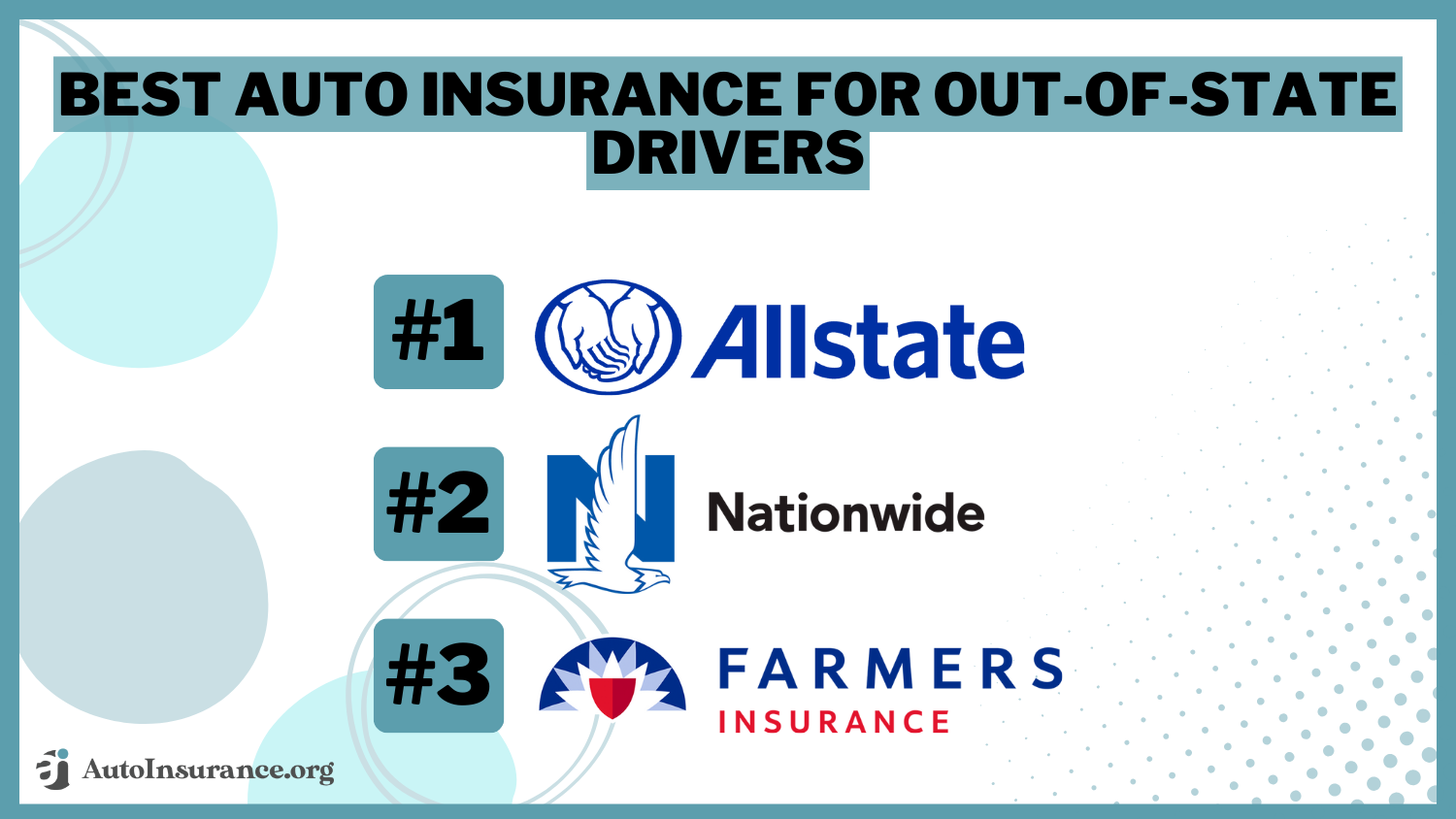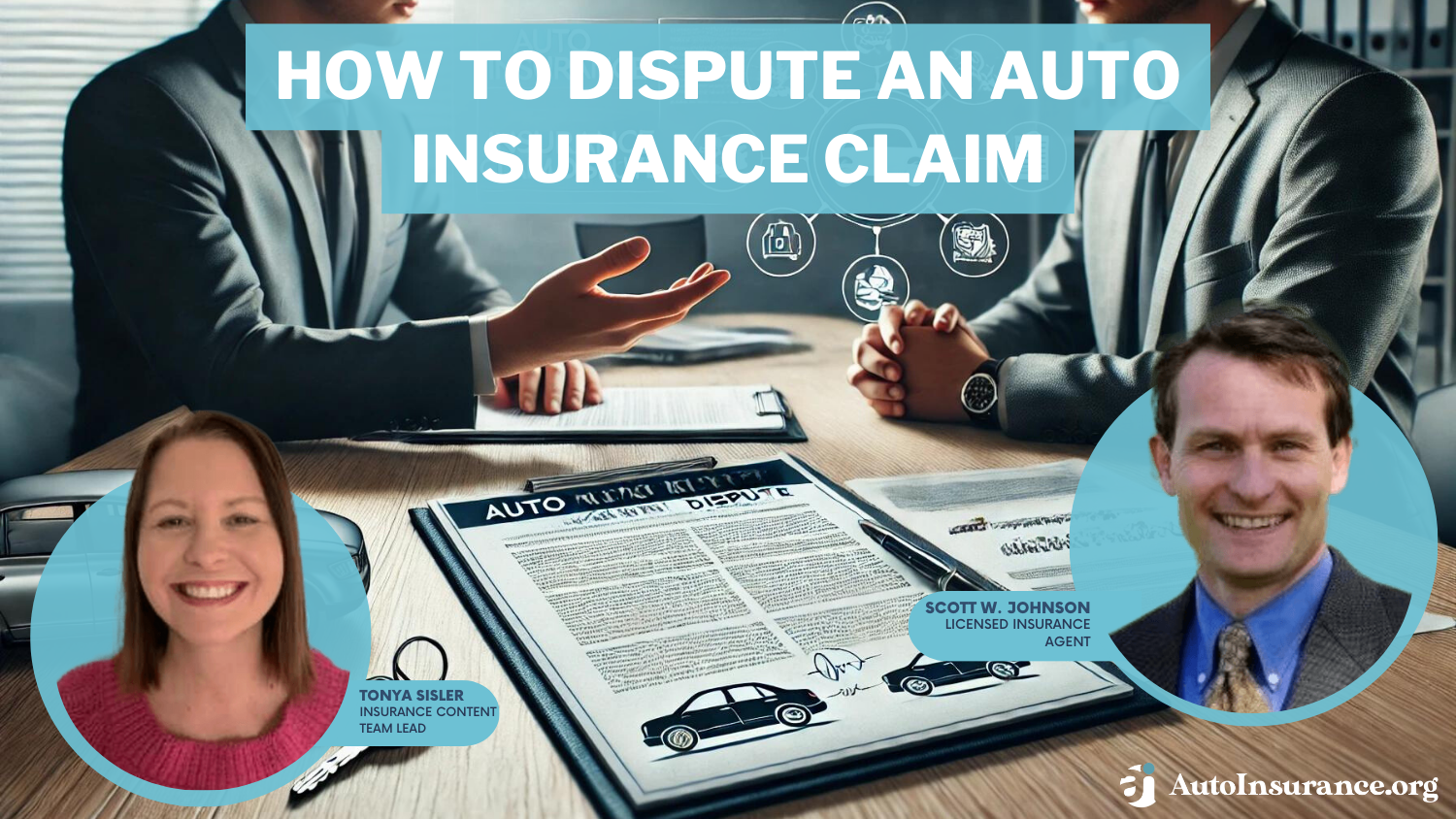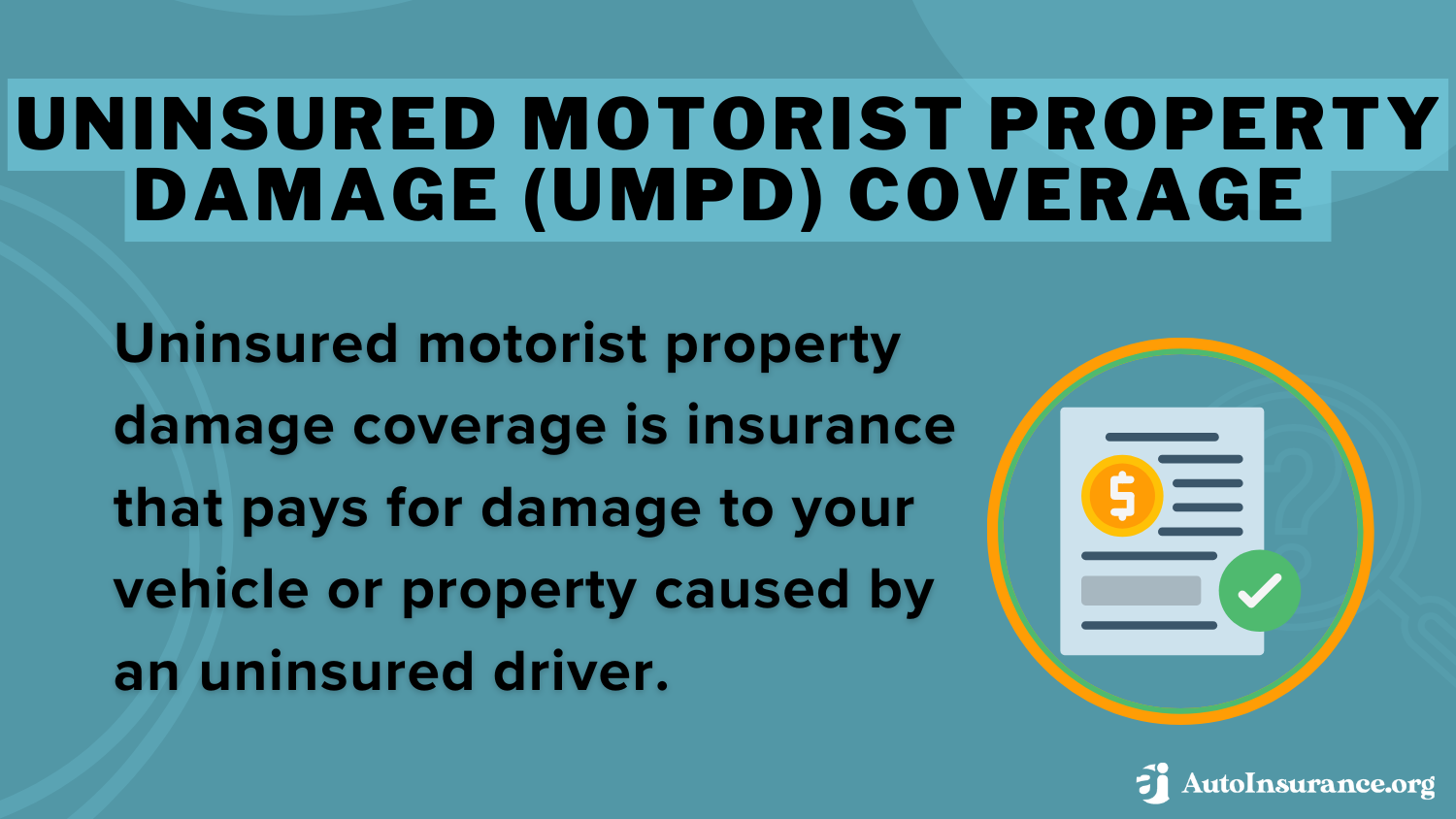What is a good auto insurance score?
What is a good auto insurance score? Auto insurance scores range from 300 to 997. Improve your score by (1) paying down debt, (2) driving safely, and (3) resolving minor damage yourself. One at-fault accident can decimate your score and raise your rates by as much as $1,000 annually.
Read more Secured with SHA-256 Encryption




Table of Contents
Table of Contents


Insurance and Finance Writer
Alexandra Arcand is an outreach administrator and insurance expert located in North Central Ohio. She has a passion for writing, investing, and education. As an insurance content writer for over three years, Alexandra has first-hand experience in business finance, economics, and real estate. She leads an outreach writing team that specializes in travel, real estate, healthcare, law, finance, an...
Alexandra Arcand


Licensed Insurance Agent
Scott W Johnson is an independent insurance agent in California. Principal Broker and founder of Marindependent Insurance Services, Scott brings over 25 years of experience to his clients. His Five President’s Council awards prove he uses all he learned at Avocet, Sprint Nextel, and Farmers Insurance to the benefit of his clients. Scott quickly grasped the unique insurance requirements of his...
Scott W. Johnson
Updated December 2024
What is an auto insurance score? Even though they sound similar, your insurance score and your credit score are actually two different things. Your insurance score helps auto insurance companies determine what coverage rate to charge you, as it evaluates your risk as a driver.

Insurance companies are trying to figure out the likelihood that you will eventually file a claim under your policy. The fewer claims you file, the better your score.
As a general rule of thumb, drivers who end up filing a claim are more expensive to insure. The higher your score, the lower the rate you will be quoted for insurance. Other factors, such as your payment history, credit history, accident history, and overall insurance history are all used to calculate your insurance risk.
- Most companies use your insurance score to figure out your risk level as a driver
- The formula used to generate your insurance score is based on your auto accidents and auto insurance claim record as well as information from your credit history
- Your insurance score is focused on the likelihood that you will have an accident or need to file a claim under your auto insurance policy or how much money you may cost your insurer
- Your total insurance score could be anywhere between 300 and 997
What Determines Your Insurance Score?
In general, your auto insurance score is based on your credit score and claims history report. Let’s take a look at what just one at-fault claim can do to your rates.
Average Auto Insurance Liability Claims and the Effect on Annual Auto Insurance Rates
| Auto Insurance Claim Data | Dollar Amount |
|---|---|
| Average liability claim for property damage | $3,638 |
| Average liability claim for bodily injury | $15,270 |
| Average auto insurance rate increase after an at-fault accident | $1,000 |
Even if you have not filed a claim with your current insurance company, an insurer may be able to find your past claims history with other companies through private databases that major insurance companies subscribe to.
Insurance companies submit claims information for each of their clients to these databases. The two major databases for claims information about drivers are the Automated Property Loss Underwriting System (A-PLUS) and the Comprehensive Loss Underwriting Exchange (CLUE).
Your credit score is considered in determining your insurance score because your credit history is an indicator of your financial responsibility.
Auto insurance companies have found those with a good credit report are statistically less likely to end up filing a claim under their auto insurance policies, so they end up with a lower insurance cost than someone with a poor credit report.
Some of the factors that influence your credit score are:
- Outstanding debt
- History of making payments on time
- Credit mix and credit utilization
- Whether you have ever filed for personal bankruptcy
- Current loans
- The ratio of your debt to income.
This information is compiled into an auto insurance score chart that comprises a great deal of information, including vehicle type, driving history, location, credit score, and other factors.
Free Insurance Comparison
Compare Quotes From Top Companies and Save
Secured with SHA-256 Encryption
What is a general range for insurance scores?
There are two major independent companies that generate insurance scores: the Fair Isaac Corporation and ChoicePoint. Both companies offer a range of scores. The higher the score, the lower-risk driver you are considered to be by the insurance industry.
Under the Fair Isaac Corporation, the current insurance scoring model called a FICO score, awards a score between 300 and 900. A FICO score above 700 is typically a decent score for an insurer.
In addition, understanding the auto insurance score scale is crucial for policyholders aiming to gauge their standing in insurers’ eyes. This scale evaluates various factors that affect your insurance score, such as credit history, driving record, and insurance claims history. Typically, an auto insurance credit score scale ranges from poor to excellent, influencing the premiums individuals pay.
An acceptable score range for auto insurance typically falls within the good to excellent range, indicating lower risk and potentially lower premiums. On the other hand, scores on the lower end of the spectrum are considered a bad score in auto insurance, signaling higher risk to insurers and resulting in higher premiums or coverage limitations.
Monitoring your auto insurance score regularly helps ensure accuracy and identify areas for improvement, potentially leading to better rates and coverage options.
Achieving a good value score for auto insurance involves maintaining a solid credit profile, safe driving habits, and proactive management of insurance claims.
It’s essential for consumers to monitor their auto insurance score regularly to ensure accuracy and identify areas for improvement. Factors like maintaining a low debt-to-credit ratio, timely payment of bills, and minimizing insurance claims can positively impact your score.
Insurers use these metrics to not only assess risk but also to tailor premiums and coverage options accordingly. By understanding the auto insurance score scale and the auto insurance credit score scale, individuals can take proactive steps to enhance their scores and potentially secure more favorable insurance rates.
Furthermore, understanding the range of insurance scores is essential for evaluating your policy’s quality and your insurer’s reliability. The range of the customer score in policy servicing typically varies from poor to excellent, with higher scores indicating better customer service and satisfaction. It’s important to know where to check your auto insurance score to ensure accuracy and address any discrepancies.
Insurance companies are often rated based on their financial strength and service quality, with a rated B auto insurance indicating moderate financial stability, while a BBB+ rating suggests a good, reliable performance. Keeping an eye on these ratings can help you choose an insurer that meets your needs effectively.
What is a good auto insurance score?
Under the ChoicePoint insurance scoring system, insurance scores are between about 300 and 997.
What is the best auto insurance score? 997 is the highest and best score, and other numbers close to it will help get you better coverage rates.
The benchmark for insurance scores to translate to lower insurance premium rates will differ according to each auto insurance company.
Some companies will have higher standards for insurance scores than others, which makes it a smart idea to shop around if you are concerned about a low insurance score based on what you know about your insurance history.
Ask your insurance company if there are good driver discounts available for insured drivers who have a certain length of time on their driving record without an accident or claim. You could also see if there are Occasional Driver Insurance Rates you could take advantage of.
On the other note, a good auto insurance score is crucial for securing favorable insurance premiums and terms. The auto insurance underwriting score is a significant factor in this evaluation process. This score is determined by analyzing various aspects of a policyholder’s financial and driving history, such as credit reports, past claims, and driving records.
A high underwriting score indicates lower risk, leading to better insurance rates. On the other hand, an auto insurance risk level score categorizes the level of risk associated with the insured. This score ranges from low to high, with a lower risk level score generally resulting in lower premiums.
Insurers use multiple tools and charts to assess these scores, including the insurance smart score chart. This chart provides a visual representation of the different risk levels and helps insurers determine appropriate premium rates based on a policyholder’s risk profile. A consumer score is also taken into account, reflecting the overall financial behavior of the individual.
Specific factors like timely bill payments, credit utilization, and the length of credit history are all factors that determine the rating of an auto insurance company. A score that falls into the category of a bad risk score can lead to higher premiums and potentially limited coverage options.
For example, a risk score of 7 on a scale from 1 to 10 might be considered moderate to high risk, depending on the insurer’s criteria. This could affect the availability of certain insurance products or the rates offered. Therefore, maintaining a good credit history, minimizing claims, and adhering to safe driving practices are essential for improving your auto insurance score.
By understanding and managing these factors, policyholders can work towards achieving a better auto insurance score, thereby ensuring more affordable and comprehensive coverage.
Are there ways to improve your insurance score?
As noted above, insurance scores use your credit history to calculate your rating. One of the most effective ways to improve your insurance score is to improve your credit score.
If you have debt that you are able to pay off, such as credit cards, it can seriously improve your credit score. It may also be smart not to take out any new lines of credit for a certain period of time.
For any bills that are past due, do your best to get them taken care of as quickly as possible. Poor credit is a huge factor in calculating your insurance premium, second only to your insurance history.
Another effective way to improve your insurance score is to not have any claims for a certain length of time in order to tidy up your insurance history and fix a poor score.
Other than practicing safe driving habits, resolving any minor damage to your automobile or incidents without contacting your insurance company can save you money down the line and help you avoid a decrease in your insurance score.
Subsequently, improving your insurance score is crucial for obtaining better premiums and coverage. Insurance companies measure customer satisfaction to ensure they are meeting policyholder expectations, and a higher satisfaction rating can indirectly influence your score.
To boost your score, focus on maintaining a clean driving record, paying your bills on time, and reducing outstanding debts. These actions positively affect the car insurance rating system, which assesses various factors such as your credit history and driving behavior. By understanding how these elements contribute to your score, you can take proactive steps to improve it.
Additionally, familiarizing yourself with the car insurance score scale can help you gauge where you stand and what areas need improvement. Regularly checking your DPS score—which includes your driving, payment, and stability metrics—can provide insights into specific areas that require attention.
By addressing any issues reflected in your DPS score and consistently striving for better financial and driving habits, you can enhance your overall insurance profile. This strategic approach will not only improve your insurance score but also demonstrate to insurers that you are a low-risk policyholder, leading to better insurance terms and rates.
Free Insurance Comparison
Compare Quotes From Top Companies and Save
Secured with SHA-256 Encryption
What do you need to know about your auto insurance score?
Along with other criteria like marital status, age, and your insurance score is the methodology used by auto insurance companies to determine the probability that you will file a claim under your policy. Though it was used in the past, many states now prohibit insurers from using gender to determine rates.
The major things that affect your auto insurance score are your credit score and claims history. Even if you filed a claim under another insurance policy, this information could be submitted to a universal private database that is used by all of the major auto insurance companies.
To get the lowest insurance quote possible on your premium, you want to have the highest insurance score you can. Take steps to improve your credit score and avoid filing claims in order to increase your insurance score.
Moreover, understanding your auto insurance score is essential for managing your premiums and securing favorable coverage. One important aspect is maintaining a fair credit score, which can significantly impact your insurance rates. While a fair credit score might not be the best, it is a stepping stone toward improving your overall financial health.
Striving for an ideal score involves not only improving your credit but also demonstrating responsible behavior in other areas, such as maintaining a clean driving record and minimizing insurance claims.
When evaluating insurance providers, it’s also important to consider their claims service. Auto insurance companies known for having the best claims service are those that efficiently handle claims, providing quick and fair settlements.
Look for companies with a good claim rate and a good claim ratio, as these metrics indicate their reliability in processing claims and satisfying policyholders. Choosing an insurer with a strong claims service ensures that you will be well-supported in the event of an accident, which is a crucial component of your overall insurance experience.

Frequently Asked Questions
What is an auto insurance score?
An auto insurance score is a numerical rating used by insurance companies to assess the risk associated with insuring a particular individual. It is based on various factors such as credit history, driving record, age, type of vehicle, and insurance claims history. The score helps insurers determine premiums and eligibility for coverage.
How is an auto insurance score calculated?
The exact calculation method for an auto insurance score can vary among insurance companies. Generally, it involves analyzing data from credit reports, motor vehicle records, and other relevant sources to assess the likelihood of filing insurance claims. Each factor is assigned a weight, and the scores are generated based on a proprietary algorithm.
What is considered a good auto insurance score?
The specific range or threshold for a good auto insurance score can vary among insurance companies. Generally, a higher score indicates a lower risk profile, leading to better insurance rates and more favorable coverage options. However, the exact interpretation of a good score may differ among insurers.
Can I find out my auto insurance score?
Insurance companies typically do not disclose the exact auto insurance score they use for rating purposes. However, you can check your credit score and maintain good credit, as credit history often plays a significant role in determining the auto insurance score. Monitoring your credit report for accuracy and addressing any issues can positively impact your overall score.
How can I improve my auto insurance score?
Tips for improving your auto insurance include:
- Maintain good credit: Pay bills on time, reduce debt, and keep credit utilization low.
- Maintain a clean driving record: Observe traffic laws, and avoid accidents and traffic violations.
- Choose your vehicle wisely: Some vehicles have higher insurance costs due to factors like safety ratings and repair costs.
- Regularly review and update your insurance coverage: Ensuring you have appropriate coverage and limits can help maintain a favorable score.
Can my auto insurance score affect my insurance premiums?
Yes, your auto insurance score can affect your insurance premiums. Insurers use the score as one of the factors in determining your premium rates. A higher score is generally associated with lower premiums, while a lower score may result in higher premiums or limited coverage options.
Is an auto insurance score the same as a credit score?
No, an auto insurance score and a credit score are different. An auto insurance score focuses on factors relevant to insurance risk assessment, such as credit history, driving record, and claims history. A credit score, on the other hand, evaluates your creditworthiness and financial reliability based on credit-related information.
How to check your auto insurance score?
You can check your auto insurance score by contacting your insurance provider directly or accessing their online customer portal. Many insurers now offer tools for policyholders to view their scores, which may include factors such as credit history, claims history, and driving record. Additionally, consumer reporting agencies like Experian or TransUnion may provide access to your insurance score as part of their credit monitoring services.
How to improve your auto insurance score?
Improving your auto insurance score involves several proactive steps. Start by maintaining a good credit history, as this is a significant factor in determining your score. Pay bills on time, reduce outstanding debts, and monitor your credit report for inaccuracies. Safeguard your driving record by avoiding accidents and traffic violations. Additionally, limit insurance claims to essential incidents to prevent an increase in your risk profile.
What is a good auto insurance credit score?
A good auto insurance credit score generally falls between 700 to 850. This range indicates a solid credit history, demonstrating responsible financial management and a lower likelihood of filing insurance claims. Insurers typically offer better rates and coverage options to individuals with higher credit scores due to their perceived lower risk.
What is a good car insurance score?
What is the best insurance score?
What is the auto risk score?
What is the auto insurance score from a consumer reporting agency?
What is risk grading in insurance?
How is insurance severity calculated?
Which insurance company rating service provides the most accurate ratings?
What does insurance risk level mean?
How to calculate insurance value?
What is average severity in insurance?
Get a FREE Quote in Minutes
Insurance rates change constantly — we help you stay ahead by making it easy to compare top options and save.






